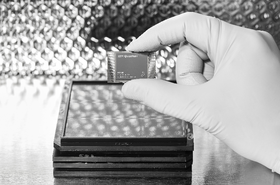The second cohort of semiconductor startups that will benefit from the government-backed ChipStart incubator has been revealed.
The scheme, which was first launched in October 2023 under the previous Conservative government, provides companies with technical and commercial help to access funding from private investors.
Originally backed by £1.3 million ($1.7m) in government funding, the first cohort of 11 companies – which included Vaire Computing and Wave Photonics – have closed £10 million ($12.8m) of funding in a ten-month period, with a total of around £20 million ($25.5m) in commitments.
The Department for Science, Innovation, and Technology said ChipStart had helped to provide the startups with access to the full Silicon Catalyst ecosystem, including design tools, IP, and prototyping capabilities, in addition to commercial expertise, mentorship, and exposure to more than 270 Silicon Catalyst advisors.
“Innovation in semiconductors can underpin technological advancements in every field, from AI to consumer devices and healthtech. British researchers across the country are leading in R&D in this essential field and the support we are delivering through ChipStart is helping their ideas become reality,” said minister for science, Patrick Vallance. “We are making sure British science leadership converts to help address critical global challenges and drive economic growth.”
Startups that have joined the second cohort include HeronIC, a hardware design automation company; Nanomation, a nanomaterials firm; Rigpa.AI, a fabless chip design start-up focused on AGI applications; and Qontrol, a quantum photonics startup.
ChipStart is not the only UK government scheme focused on supporting the semiconductor industry. In February 2024, it announced £11 million ($14m) in funding for two new semiconductor Innovation and Knowledge Centers in Bristol and Southampton.
Three months later, the UK Semiconductor Institute was launched. Tasked with helping to deliver the government’s £200m ($253m) National Semiconductor Strategy, the institute is intended to be a single point of contact for researchers, academics, and the public and private sector.






